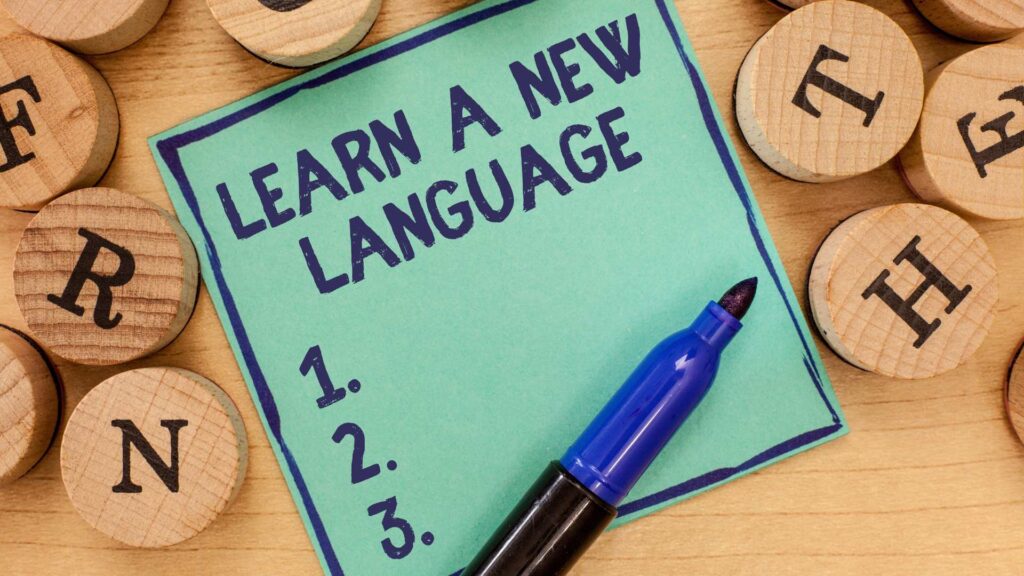Table of Contents
Can children with autism learn a second language?
In today’s increasingly interconnected world, many families navigate life using more than one language. For parents of bilingual children with autism, this presents unique questions and challenges. Can a child with autism successfully learn two languages? Will being bilingual help or hinder their communication development? If you’re a parent or caregiver seeking answers, you’re not alone.
The journey of raising a bilingual child with autism spectrum disorder ASD) involves understanding how language acquisition and autism intersect and how you can support your child’s growth in a multilingual environment.
At first glance, balancing two languages might seem overwhelming for children who already face communication challenges. However, according to the Journal of the American Academy of Child and Adolescent Psychiatry, about one in four children with autism spectrum disorder (ASD) are raised in a bilingual environment.
In this blog by ABA Centers of New Jersey, we’ll delve into why communication can be tricky for children with autism, explore the potential benefits and challenges of bilingualism, and offer practical strategies for fostering language development.
Can Bilingual Children with Autism Learn Multiple Languages?

The idea that learning two languages might confuse a child with autism is a common concern among parents. However, the National Autistic Society has not found evidence that it harms their language skills. In fact, bilingual children with ASD can learn and use two languages effectively, and bilingual interventions may even enhance communication outcomes.
Moreover, the Journal of Autism and Developmental Disorders has shown that bilingualism, in and of itself, does not hinder language development in children with autism. This shift in perspective has led to a growing interest in further research to explore how raising a bilingual child with ASD impacts their development.
Challenges of Bilingualism in Autism
While children with autism can learn multiple languages, they may face unique challenges. Understanding these challenges can help families develop effective strategies to support their child’s bilingual development.
Delayed Language Milestones: Children with autism might experience delays in reaching language milestones, which can be more pronounced in a bilingual setting. This delay doesn’t mean they won’t learn both languages, but they might need more time and support.
Mixing Languages: It’s common for bilingual children to mix languages when speaking, a phenomenon known as code-switching. For children with autism, this might happen more frequently and can be confusing for them and their listeners.
Difficulty Generalizing Language Skills: Children on the spectrum often struggle to generalize skills across different contexts. They might be able to use a word or phrase in one language at home but not in a social setting.
Communication Hurdles in Bilingualism: Managing multiple languages requires significant cognitive effort. Bilingual children with autism might find it challenging to process and understand language when they need to switch between linguistic systems. This process can lead to a smaller vocabulary in each language compared to their monolingual peers, impacting their ability to express themselves effectively.
Family Considerations in a Bilingual ASD Environment
For families raising a bilingual child with autism, decision-making can be challenging. There are several factors to consider, including the language spoken at the child’s school, the language spoken in the community, and the language that the child naturally gravitates towards. Each of these factors will play a role in the child’s language development and should influence the family’s decisions about language exposure and therapy.

The American Speech-Language-Hearing Association (ASHA) defines bilingualism as the use of two or more languages in daily life. While fostering bilingualism has clear advantages, families must also consider the unique ways that autism impacts language acquisition. Some children with autism may have minimal verbal communication, which can intensify the need for careful language planning within the home.
As parents weigh their options, it is crucial to consider both the benefits and challenges of raising a bilingual child with autism. The key is to find a balance between supporting the child’s communication needs while being mindful of the language demands of their environment.
Strategies for Supporting Bilingual Children with Autism
Although individuals with autism face many communication challenges and the relationship with learning one or more languages may seem challenging, as parents, we can always apply strategies to support the language development of our children.
These strategies include:
1. Consistency Across Languages: It’s essential to maintain consistency in language use. For example, if one parent speaks one language and the other speaks a different language, sticking to the same language consistently in each setting can help the child understand the rules of language use.
2. Encourage Communication in Both Languages: Don’t force your child to choose one language over the other. Instead, encourage the use of both languages, even if it’s just for simple words or phrases. Use positive reinforcement to reward language attempts in both languages.
3. Visual Supports: Children with autism often respond well to visual supports, which can help them understand and retain language. These can include visual schedules, pictures, or flashcards that pair words with images to strengthen vocabulary in both languages.
4. Patience and Understanding: Above all, parents should remain patient as their child navigates the challenges of bilingualism. Children with autism may take more time to master language skills, but with the proper support, they can thrive in both languages.
How ABA Centers of New Jersey Empowers Bilingual Families
At ABA Centers of New Jersey, we recognize the unique challenges and opportunities that come with raising a bilingual child with autism. Our approach is grounded in scientific, evidence-based ABA therapy tailored to support language development in both primary and secondary languages.
Our experienced therapists employ proven methodologies to address each child’s specific communication needs. By focusing on measurable outcomes, we help children enhance their language skills, improve social interactions, and navigate sensory sensitivities more effectively. Our goal is to provide targeted interventions that foster meaningful progress in both linguistic and developmental domains.
We serve families throughout New Jersey, including the Township of Franklin, the Township of Monroe, Perth Amboy, Parsippany, Morristown, the Township of Roxbury, Cherry Hill, Trenton, Woodstown, and surrounding areas, ensuring access to high-quality, personalized care. Our commitment is to equip children with the tools they need to succeed in a bilingual environment grounded in research and best practices.
Call us at (855) 640-7888 or schedule a free consultation to learn how our specialized programs can help your child develop critical communication skills and thrive in a multilingual world.








